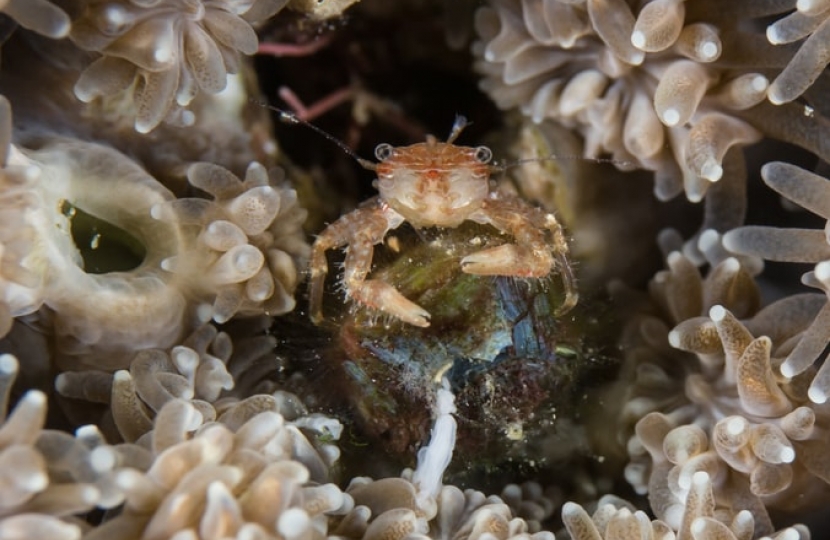
The Marine Management Organisation (MMO) has unveiled plans to ban bottom-trawling in parts of the North Sea and on the South Dorset coast, in order to protect the marine environment, with a consultation that lasts until the end of March 2021.1
DEFRA Secretary George Eustice said, “Now that we have left the Common Fisheries Policy, we are able to deliver on our commitment to achieve a healthy, thriving and sustainable marine environment. The UK has already established an impressive ‘Blue Belt’ covering 38% of our waters and our Fisheries Act has provided us with additional powers to go further to protect our seas around England. This proposal to introduce by-laws to safeguard four of our precious offshore Marine Protected Areas shows how we are putting these powers into action."
It follows Greenpeace dropping concrete blocks onto the Dogger Bank and legal action by Blue Marine.
Bottom-trawling is one of the most damaging methods of fishing for biodiversity and the environment, because it involves dragging weighted nets to scoop up the maximum quantity of fish. This amounts to rotivating the sea bed, ripping-up plants and their roots, destroying burrows and mixing pollutants into plankton. Areas that have been bottom-trawled have become the seabed equivalent of a desert.
According to a 2008 paper published in the Journal of Experimental Marine Biology and Ecology, the long term effects are severe and bottom-trawling activities around the world are globally-significant in terms of the nutrient balance in the oceans.2
Tom McCormack, Chief Executive Officer of MMO, said, "This consultation is a big step forward in agreeing measures that will help protect and revive important marine habitats, vital to the unique and vibrant marine life that live within them. We are ambitious for England’s seas and want to hear as many views as possible in order to create benefits for people and the economy, while protecting our precious marine environment for future generations."
Speaking to the BBC, the National Federation of Fishermen's Organisations, said, “The decision has been taken with zero discussion with those affected. There will be knock on environmental as well as social and economic impacts.”
Beyond the industry organisation, the plans have been widely applauded as a positive step for marine conservation in areas that have been badly overfished for decades.
Speaking for Vegan Conservatives, Graham Godwin-Pearson says, "Britain is well-placed to demonstrate how to protect the marine environment properly. Ending a practice that is so damaging to the environment and biodiversity is another excellent step forward for a government that is working hard to safeguard our outstanding natural habitats. The sea bed may not be visible to the public or the media, but that doesn't make it any less important."
The areas included in the consultation are as follows:-
- Dogger Bank Special Area of Conservation (East of England)
- Inner Dowsing, Race Bank and North Ridge Special Area of Conservation (The Wash approaches, off the Lincolnshire and North Norfolk coasts)
- South Dorset Marine Conservation Zone (South West - Dorset)
- The Canyons Marine Conservation Zone (South West – Offshore)
- 1Marine Management Organisation launches consultation on four of England’s Marine Protected Areas. MMO, 1st Feb 2021
- 2Effects of bottom trawling on ecosystem functioning, Frode Olsgard, Morten T. Schaanning, Stephen Widdicombe, Mike A. Kendall, Melanie C. Austen. Journal of Experimental Marine Biology and Ecology 2008



